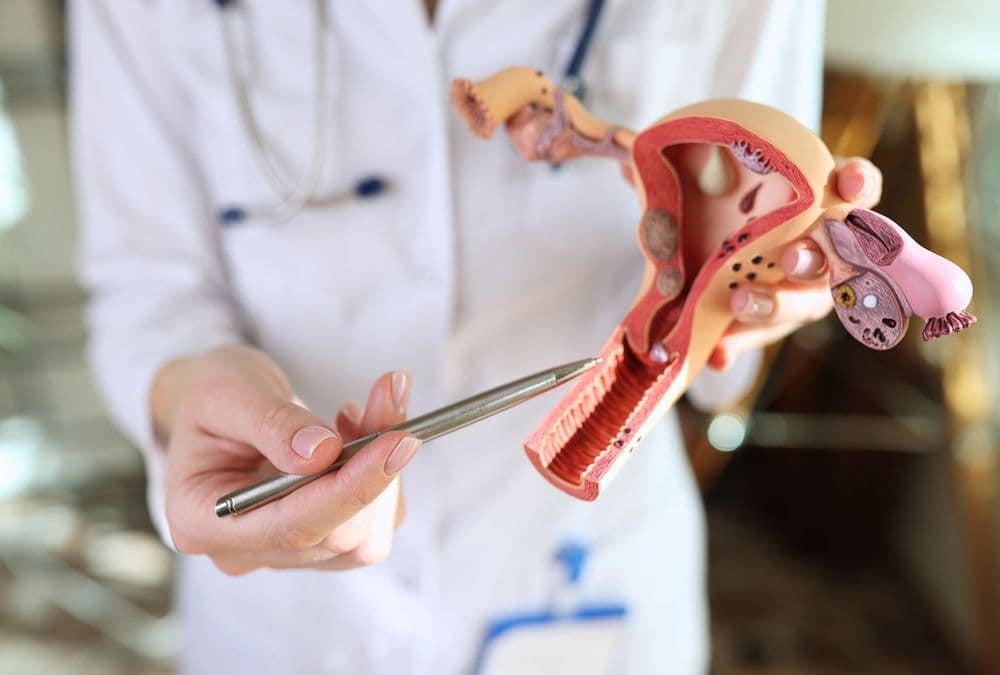What Is IUI?
IUI (intrauterine insemination), also known as artificial insemination, is a fertility treatment that involves placing sperm directly into a woman's uterus during her fertile window. This procedure benefits individuals and couples with sperm quality or quantity deficiencies, unexplained infertility, or cervical factor infertility. Unlike IVF, which involves fertilizing the egg outside the body, IUI allows natural fertilization within the woman's body.
A good candidate for IUI is a woman with open fallopian tubes, a normal uterine cavity, a partner with sufficient sperm count and motility, or donor sperm. Couples and individuals must undergo thorough fertility testing and evaluation before proceeding with IUI to ensure it is the appropriate treatment option for their situation.
Preparing for Your First IUI Procedure
Before undergoing an IUI procedure, individuals and couples will typically consult a fertility specialist. During the first consultation, the specialist will perform a physical examination, review your medical history, and discuss any previous fertility treatments or pregnancies. The specialist may also recommend additional fertility testing to determine the cause of infertility and to assess the woman's ovarian reserve.
In preparation for an IUI procedure, lifestyle changes may be recommended by your fertility clinic to improve the chances of success. These changes may include maintaining a healthy weight, avoiding alcohol, and managing stress. Additionally, the woman may be prescribed fertility medications to stimulate the ovaries and increase the number of mature eggs available for fertilization.
What Happens During the IUI Procedure?
The IUI procedure typically occurs in the fertility clinic and does not require anesthesia. The woman will lie on an examination similar to a pelvic exam. The fertility specialist will insert a speculum into the vagina to visualize the cervix. The sperm sample, washed and concentrated to remove impurities, is inserted into the uterus using a thin catheter.
The entire procedure usually takes only a few minutes and is relatively painless. Some women may experience mild cramping or discomfort during the process, but this typically subsides quickly. After the procedure, the woman will lie down briefly to allow the sperm to swim towards the fallopian tubes.

The Role of Fertility Medications in IUI
Fertility medications are often used in conjunction with IUI to increase the chances of success. These medications stimulate the ovaries and promote the development of multiple mature eggs. The most commonly used medications in IUI are oral medications such as Clomid or letrozole, which help regulate ovulation.
In some cases, your fertility clinic may use injectable medications such as gonadotropins to stimulate the ovaries. These medications contain follicle-stimulating hormone (FSH) and luteinizing hormone (LH), which help promote the growth and maturation of multiple eggs. In cases where oral medications have not been successful or more mature eggs are needed, your fertility specialist will use injectable medications.
While fertility medications can increase the chances of success in an IUI procedure, they come with potential side effects. These side effects may include bloating, mood swings, hot flashes, and breast tenderness. Couples must discuss their fertility medications' potential risks and benefits with their fertility specialist before starting treatment.
Potential Risks and Side Effects of IUI
Like any medical procedure, IUI carries some risks. One of the most common risks associated with IUI is the possibility of multiple pregnancies. Because fertility medications stimulate the ovaries and increase the number of mature eggs, there is a higher chance of conceiving twins or even triplets. This risk can be minimized by ensuring your fertility specialist closely monitors your response to fertility medications and adjusts the dosage if necessary.
Regarding side effects, IUI is generally a well-tolerated procedure with minimal discomfort. Some women may experience mild cramping or spotting after the procedure, but these symptoms usually subside within a day or two. Infection or damage to the uterus or fallopian tubes may occur in rare cases, but these complications are extremely rare.
Post-IUI Care and Recovery
After an IUI procedure, couples will typically receive aftercare instructions from their fertility specialist. These instructions may include recommendations for rest, avoiding strenuous activities or exercise, and refraining from sexual intercourse for a certain period. Couples need to follow these instructions to optimize their chances of success.
Most women can resume their normal daily activities after an IUI procedure. However, it is essential to listen to your body and to take it easy if you are experiencing any discomfort or pain. You should also schedule a follow-up appointment with your fertility specialist to discuss your results and determine the next steps.
Interpreting the Results of Your IUI Procedure
The results of an IUI procedure are determined through a pregnancy test, usually done about two weeks after the procedure. A positive result indicates that pregnancy has occurred, while a negative result means pregnancy has not been achieved. It is important to note that a negative result does not necessarily mean the procedure was unsuccessful, as it may take multiple attempts before achieving a successful pregnancy.
If the results of the IUI procedure are positive, it is important to schedule an appointment with an obstetrician or midwife to confirm the pregnancy and to begin prenatal care. You should consult your fertility specialist to discuss the next steps if the results are negative. These may include repeating the IUI procedure, exploring other fertility treatment options such as ICSI or IVF, or further testing to determine the cause of infertility.
What to Do If Your First IUI is Unsuccessful
If your first IUI procedure is unsuccessful, it is important to remember that you are not alone. Many couples require multiple attempts before achieving a successful pregnancy. It is important to discuss the reasons for the unsuccessful IUI with your fertility specialist and to explore other options.
Depending on the circumstances, your fertility specialist may recommend repeating the IUI procedure with or without additional fertility medications. Alternatively, they may suggest exploring other fertility treatment options, such as IVF or intracytoplasmic sperm injection (ICSI). An open and honest discussion with your fertility specialist is crucial to determining the best course of action for your situation.
Exploring Other Fertility Treatment Options
While IUI is a widely used and effective fertility treatment, it may not be the best option for every individual or couple. There are several other fertility treatment options available, including IVF and ICSI.
IVF involves fertilizing the egg outside the body and transferring the resulting embryo(s) into the uterus. ICSI is a similar procedure but involves injecting a single sperm directly into the egg.
When considering other fertility treatment options, you must consider factors such as age, overall health, and the cause of infertility. Consulting with a fertility specialist can help determine the best course of action based on individual circumstances.
- Protecting Your Health: Choosing A Sperm Bank Over Natural Insemination
- Hatching a Plan: Learning The Basics About Assisted Hatching in IVF
- Navigating GYN Surgery Before Artificial Insemination
- PGT Testing and Its Role in IVF Treatment
- The Ultimate Guide To Where You Can Donate Sperm In All 50 States

